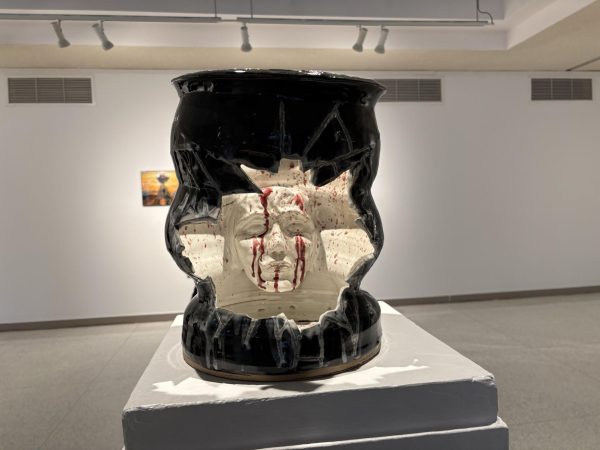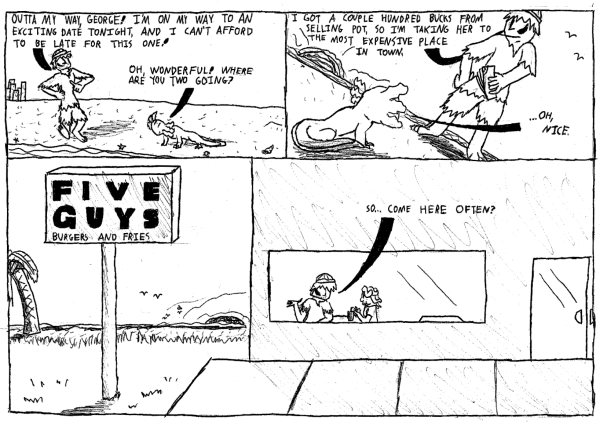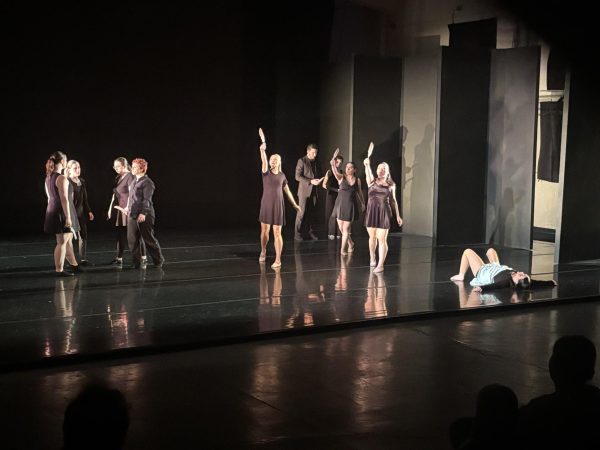‘White Boy Rick’: Why tell the story?
This past weekend, moviegoers may have been torn between “White Boy Rick,” the story of a teenage FBI informant-turned-drug ‘kingpin,’ and the “Jennifer Garner-meets-John-Rambo” travesty that is “Peppermint.” If they had chosen “White Boy Rick,” they may have walked into a theater with a crowd so massive it numbered in the fours, and with a projectionist so bored the lights stayed on through the film’s opening minutes.
“White Boy Rick,” as it turns out, is far too committed in being every film for every hot-button topic of the last three decades: American prison systems, narcotics, race, class, gender and age conflicts are all under scrutiny here.
The main failure in White Boy Rick is the inherent schism between director Yann Demange’s neon-drenched, slyly winking visual style and screenwriters Noah Miller, Logan Miller and Andy Weiss’ clunky, borderline listless screenplay with a distinct “crime doesn’t pay” tone that results in a film that goes everywhere and yet nowhere at the same time.
Demange, convinced he is making “Scarface” for Generation Z, frames his subject in low-angle, brightly-lit hero shots, trying desperately to make him cool and hip, even as the movie around the frame reminds the audience endlessly that he’s anything but a cool, hip hero.
As the script winds its way through four years of Rick’s life, though, it starts to become a character study, honing in on his volatile relationship with his father, an excellent Matthew McConaughey, who, while suspiciously looking like Rufus the Naked Mole Rat from “Kim Possible” with a toupee, turns in easily the best performance in the movie.
As the titular Rick, newcomer Richie Merritt captures the fear and thickheaded nature of an adolescent boy playing at manhood, indulging in empty acts of violence and showboating. As the movie progresses, though, you never quite buy that this kid is the same “boy genius” who moved 650 kilograms of cocaine in the span of a year. Merritt’s frequently shifting accent, meanwhile, is incredibly distracting and places him somewhere between his hometown Detroit and Mississippi, geographically speaking.
Detroit’s criminal underworld is characterized in the film as being populated almost entirely with young black men, who despite a few moments of earned outrage at the possibility of Rick doing “white time” in prison versus any of them doing “black time” for the same offense, are relatively shortchanged by the film.
As Rick’s so-called “best friend,” Rudell “Boo” Curry, R.J. Cyler delivers a bravely funny performance, but he’s wasted here. Similarly, breakout star of “Atlanta” Brian Tyree Henry is given a remarkably underwritten police officer role who antagonizes Rick at every turn, even as he’s blackmailed into helping the FBI to topple Detroit’s drug empire.
At every turn, the movie tries to make you feel outraged or impressed and constantly ask “tough” questions, but instead, it causes you to ask another:
Why tell this story?
There’s a great movie hidden somewhere in the end result. But it’s not Rick’s story. It is Boo’s story, as well as a story about the guys in Rick’s gang. Their story is the one that should have been told. Pinning the movie on Rick’s story, while certainly filled with wall-to-wall drama, is wholly unsatisfying compared to what could have been.
In spite of these missed opportunities, the movie as is falls short of its rather lofty goals of being important and controversial. By constantly shifting between tones, the movie never settles, and instead unravels. Either it’s a slick and sexy crime drama, or it’s a harrowing descent into criminality and punishment. Attempting to navigate the two tonal extremities evenly results in a film that is hypocritical — preaching with one hand while separating a line of coke with a credit card in the other.
I do not want to make it seem as if the movie is a trainwreck. It is by no means awful. For all the problems with the screenplay, the movie is still visually arresting, and all the performances are entertaining and solid, if a little undercooked. Even with the lights on, the opening ten minutes are intelligent and fascinating, establishing Rick’s family life with poise.
There are a few moments of laugh-out loud humor, and despite the fact that the FBI agents are saddled with laughable lines of dialogue like “Mrs. Reagan says ‘Just Say No,’ but sometimes people just say yes,” the cringe-inducing moments are thankfully few and far between.
However, at its heart, “White Boy Rick” doesn’t know what it wants to be, and the movie falters because of it. Even going to the theatre with zero expectations, walking out disappointed speaks to the high-mindedness of the challenge the film takes on, but the piss-poor execution ruins any chance of the film being fondly remembered.
If you want a 1980s crime drama, watch an episode of “Miami Vice.” If you want a character study of hot-blooded young criminals, watch “Goodfellas,” “Heat,” or, hell, even “Point Break.” If you want a bumpy blend of the two genres, watch “White Boy Rick.”







